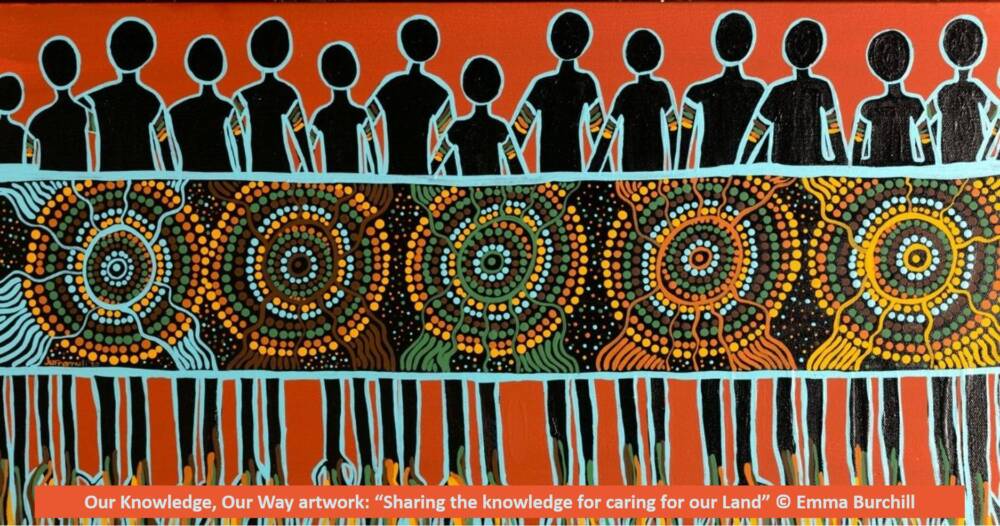(courtesy of Kate Cranney, CSIRO, as published on ecomagazine.com)
More than 100 Indigenous contributors have created Australia’s first guidelines on how to best strengthen and share Indigenous knowledge in land and sea management. The Our Knowledge, Our Way guidelines were launched on July 30 at an online event to more than 1,100 people.
The guidelines identify ways that partners can support good knowledge practice, for example, through strong partnership agreements, support for cultural governance arrangements, and protocols. Since the launch, the guidelines have been greeted with applause by key partners and contributors.
“Filling a large gap in the research world”: the response to the guidelines
“The vibe of the launch was positive, and since then we’ve seen deadly positivity on social media for the resource: it is seen as filling a large gap in the research world. The guidelines provide an opportunity to educate willing researchers, whether early career or established, as a guide to engage and understand why Caring for Country is so important to Indigenous people.” Brad Moggridge, Associate Professor in Indigenous Water Science at the University of Canberra.
“These guidelines better value and strengthen Indigenous knowledge holders and the systems that need to be in place to protect Traditional knowledge, in a platform that can be readily accessed by the researchers and the broader community.” Ricky Archer, CEO of North Australian Indigenous Land and Sea Management Alliance (NAILSMA).
“What I enjoyed the most about the launch was the opportunity to share the platform with other such strong, passionate and committed Indigenous leaders, sharing our own story, knowledge and wisdom in our way.” Torres Webb, Cultural Capability Advisor at CSIRO.
“These guidelines address the growing need for practical advice for researchers and policy makers. Knowing that these guidelines came from an Indigenous-led process gives great confidence in the advice, and the case studies demonstrate a diverse range of approaches, contexts and outcomes.” Michael Douglas, Professor and leader of the Australian Government’s National Environmental Science Program (NESP) Northern Australia Environmental Resources Hub.
To find out more about the guidelines and read the full article by Kate Cranney, please click here.

